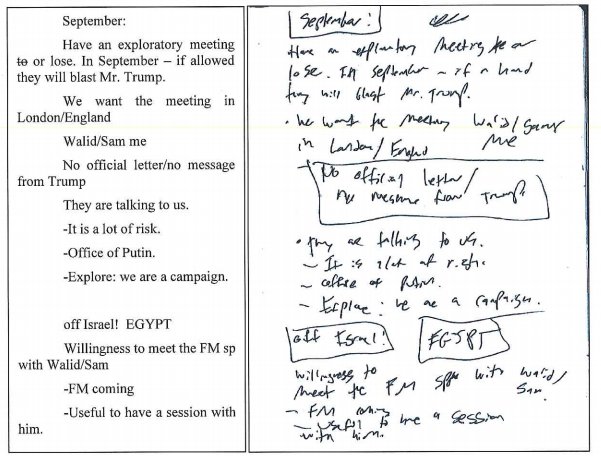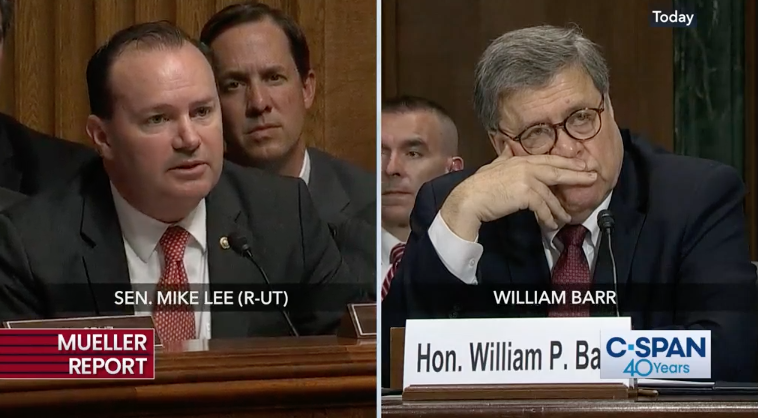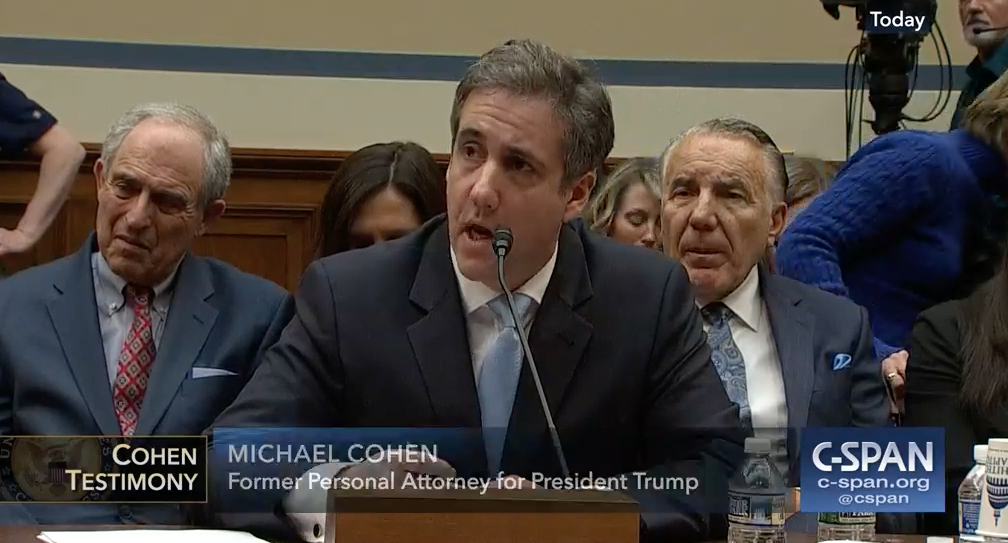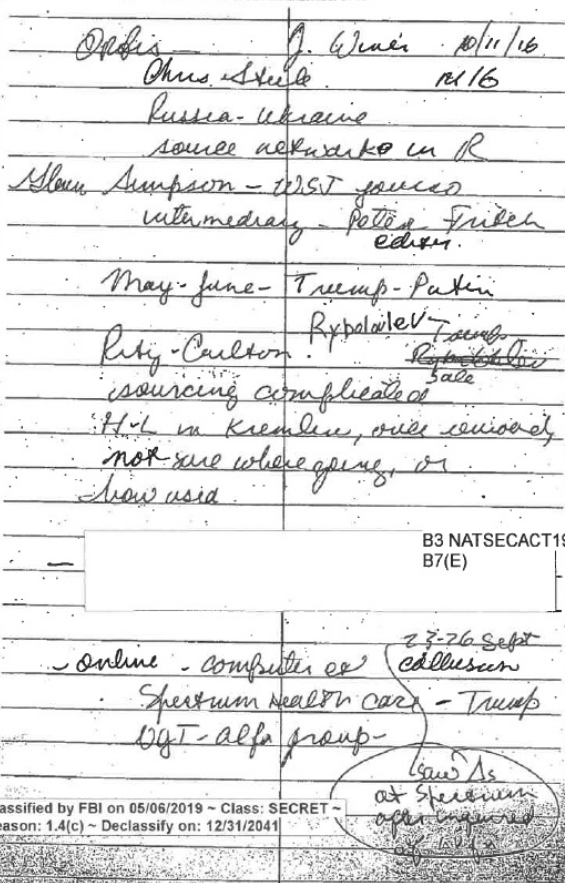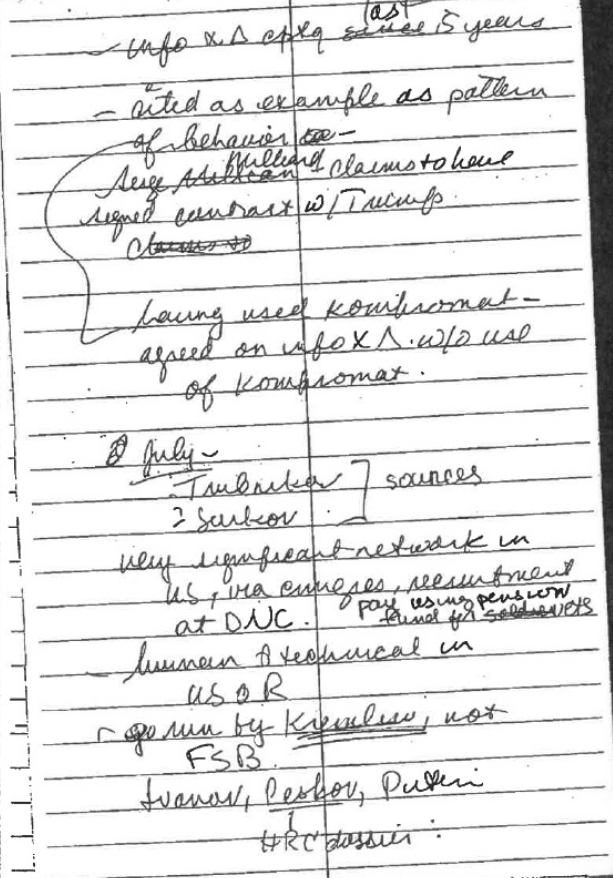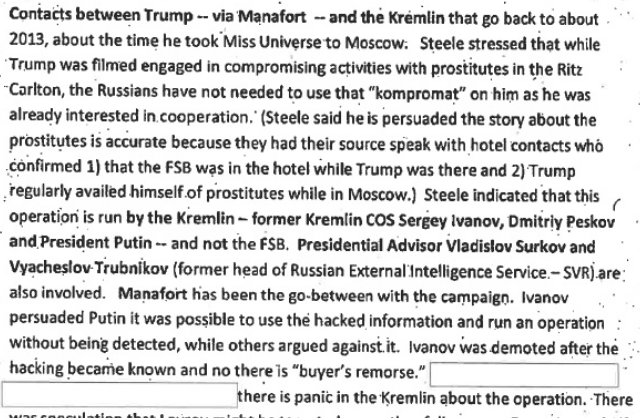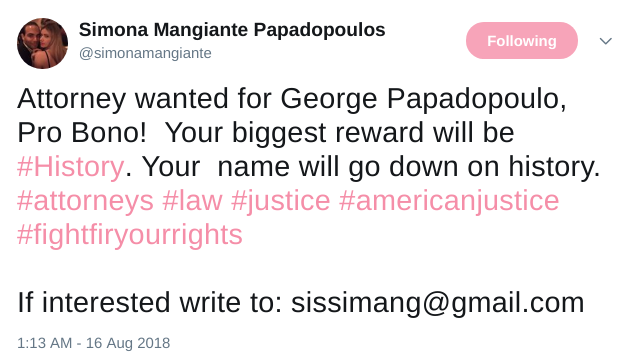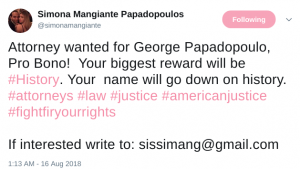Sam Clovis Responded to a Question about Russia Interfering in the Election by Raising Voter ID
There’s a small detail in the DOJ IG Report on Carter Page that deserves further mention.
When the FBI was sending informants — including Stefan Halper — to talk to people in conjunction with its investigation, it always asked them about what the campaign knew of Russia’s efforts to interfere in the election.
When Halper asked Carter Page on August 20, 2016, Page was — as he often is — hard to pin down, first suggesting there would be an October Surprise, then dodging, then suggesting the October Surprise pertained to the conspiracy theory that Russia had Hillary’s Clinton Foundation emails, then suggesting that the campaign would just “egg on” reporting on the topic (Rick Gates testified that he was doing just that, with Stephen Miller and Jason Miller).
When Source 2 raised the issue of an “October Surprise,” Carter Page said “there’s a different October Surprise … [a]lthough maybe some similarities” to the October Surprise in the 1980 Presidential Campaign. Page did not elaborate. Source 2 raised the issue again later in the meeting, and asked if the Trump campaign could access information that might have been obtained by the Russians from the DNC files. Source 2 added that in past campaigns “we would have used [it] in a heartbeat.” Page’s response was that, because he had been attacked by the media for his connections to Russia, he was “perhaps … [being] overly cautious.” When the October Surprise issue came up again, Page alluded to “the conspiracy theory about…the next email dump with … 33 thousand” additional emails, but did not further explain what he meant. Source 2 asked “[w]ell the Russians have all that don’t they?” to which Page responded “I don’t, 1-I don’t know.”
Page also said that “we were not on the front lines of this DNC thing” during the Philadelphia convention and wondered aloud “who’s better to do this?” Page asked Source 2 whether the Trump campaign should just leave it to the “other forces that be” and just let it “run its course,” with the Trump campaign “egg[ing] it a long a little bit” but without being “seen as the one advancing this in concert with the Russians.” Source 2 responded “it needs to be done very delicately and with no fingerprints” to which Page said “[o]kay.” Page asked Source 2 if “picking out a couple trusted journalists” and giving them “some ideas of … potential big stories” would be the right way to handle it. Page also suggested that “there may be people that kind of work this angle” but that Page was being “very cautious, you know, right now.”
When Halper asked George Papadopoulos about it on September 15, he also said something was coming in October, attributing that to Assange.
Source 2 also asked Papadopoulos about the possibility of the public release of additional information that would be harmful to Hillary Clinton’s campaign. Papadopoulos responded that Julian Assange of Wikileaks had said in public statements to “get ready for October … [but] [w]hatever that means no one knows.”
In a second conversation that same day, Papadopoulos suggested trying to optimize the releases — what Stone spend part of July and August doing — would be illegal and would amount to treason.
Well as a campaign, of course, we don’t advocate for this type of activity because at the end of the day it’s, ah, illegal. First and foremost it compromises the US national security and third it sets a very bad precedence [sic] …. So the campaign does not advocate for this, does not support what is happening. The indirect consequences are out of our hands…. [F]or example, our campaign is not. .. engag[ing] or reaching out to wiki leaks or to the whoever it is to tell them please work with us, collaborate because we don’t, no one does that…. Unless there’s something going on that I don’t know which I don’t because I don’t think anybody would risk their, their life, ah, potentially going to prison over doing something like that. Um … because at the end of the day, you know, it’s an illegal, it’s an illegal activity. Espionage is, ah, treason. This is a form of treason …. I mean that’s why, you know, it became a very big issue when Mr. Trump said, “Russia if you’re listening …. ” Do you remember? … And you know we had to retract it because, of course, he didn’t mean for them to actively engage in espionage but the media then took and ran with it.
[snip]
to run a shop like that. .. of course it’s illegal. No one’s looking to … obviously get into trouble like that and, you know, as far as I understand that’s, no one’s collaborating, there’s been no collusion and it’s going to remain that way. But the media, of course, wants to take a statement that Trump made, an off-the-cuff statement, about [how] Russia helped find the 30,000 emails and use that as a tool to advance their [story]. .. that Trump is … a stooge and if he’s elected he’ll permit the Russians to have carte blanche throughout Eastern Europe and the Middle East while the Americans sit back and twiddle their thumbs. And that’s not correct.
The FBI believed this was a rehearsed answer.
Case Agent 1 told the OIG that Papadopoulos’s “response to the direct questions seemed weird” to the Crossfire Hurricane team because it “seemed rehearsed and almost rote.” Case Agent 1 added that at these points in the conversation, Papadopoulos “went from a free-flowing conversation with [Source 2] to almost a canned response. You could tell in the demeanor of how [Papadopoulos] changed his tone, and to [the Crossfire Hurricane team] it seemed almost rehearsed.” Case Agent 1 emailed SSA 1 and others to report that Papadopoulos “gave … a canned answer, which he was probably prepped to say when asked.” According to Case Agent 1, it remained a topic of conversation on the Crossfire Hurricane team for days afterward whether Papadopoulos had “been coached by a legal team to deny” any involvement because of the “noticeable change” in “the tenor of the conversation.”
Even ignoring the way DOJ IG edited this conversation, which may have excluded a claim Papadopoulos has stated he made (that he had nothing to do with Russia) but would have been a demonstrable lie at the time, there’s good reason to believe it was, because Papadopoulos had, in fact, been instructed to avoid overt overtures to Russia.
Plus, in a conversation with another informant, Papadopoulos said he thought Halper would share his comments about WikiLeaks with the CIA, which suggests he was saying what he thought he should say.
So both Page and Papadopoulos answered a question about Russia by suggesting the October Surprise might be a dump of Clinton Foundation emails (which is what Stone had predicted in August).
In a conversation with Sam Clovis on September 1 (we know it was Clovis from Chuck Ross’ reporting), however, Halper got a very different answer.
We reviewed the consensual monitoring of the September 1, 2016 meeting between Source 2 and the high-level Trump campaign official who was not a subject of the investigation. 468 In the consensual monitoring, Source 2 raised a number of issues that were pertinent to the investigation, but received little information in response. For example, Source 2 asked whether the Trump campaign was planning an “October Surprise.” The high-level Trump campaign official responded that the real issue was that the Trump campaign needed to “give people a reason to vote for him, not just vote against Hillary.” When asked about the allegations of Russian interference in the 2016 elections, the high-level Trump campaign official told Source 2:
Honestly, I think for the average voter it’s a non-starter. I think in this city [Washington, D.C.] it’s a big deal. I think in New York it’s a big deal, but I think from the perspective of the average voter, I just don’t think they make the connection.
The high-level Trump campaign official added that in his view, the key for the Trump campaign “is to say what we have said all along-we need to raise the level of abstraction, we need to talk about the security of the election system, which includes things like voter IDs.”
The response is neither more nor less incriminating with regards to advance knowledge of the release than the responses from Page and Papadopoulos — it’s just different and arguably more sophisticated (remember that in one interview with the FBI in 2017, Papadopoulos said he had told Clovis about Russia planning to drop emails). It also might reflect Clovis’ experience running campaigns in Iowa and so a focus on what he understands Iowans to think about.
So it doesn’t say anything about who, on the campaign, were privy to Stone’s role in trying to optimize the releases.
But it does say something about the utter disdain one of the Trump flunkies with the most campaign experience has about democracy. He responded to a question about Russia’s efforts to influence the US election, posed by someone he perceived to be a friendly Republican, by saying the campaign should respond to concerns about Russia by raising voter IDs, a Republican effort to suppress the vote.
Do you think Russia is helping the Trump campaign, Halper asked, and Clovis answered, we’ve got our own way to undermine democracy.
OTHER POSTS ON THE DOJ IG REPORT
Overview and ancillary posts
DOJ IG Report on Carter Page and Related Issues: Mega Summary Post
The DOJ IG Report on Carter Page: Policy Considerations
Timeline of Key Events in DOJ IG Carter Page Report
Crossfire Hurricane Glossary (by bmaz)
Facts appearing in the Carter Page FISA applications
Nunes Memo v Schiff Memo: Neither Were Entirely Right
Rosemary Collyer Responds to the DOJ IG Report in Fairly Blasé Fashion
Report shortcomings
The Inspector General Report on Carter Page Fails to Meet the Standard It Applies to the FBI
“Fact Witness:” How Rod Rosenstein Got DOJ IG To Land a Plane on Bruce Ohr
Eleven Days after Releasing Their Report, DOJ IG Clarified What Crimes FBI Investigated
Factual revelations in the report
Deza: Oleg Deripaska’s Double Game
The Damning Revelations about George Papadopoulos in a DOJ IG Report Claiming Exculpatory Evidence
The Carter Page IG Report Debunks a Key [Impeachment-Related] Conspiracy about Paul Manafort
Sam Clovis Responded to a Question about Russia Interfering in the Election by Raising Voter ID



